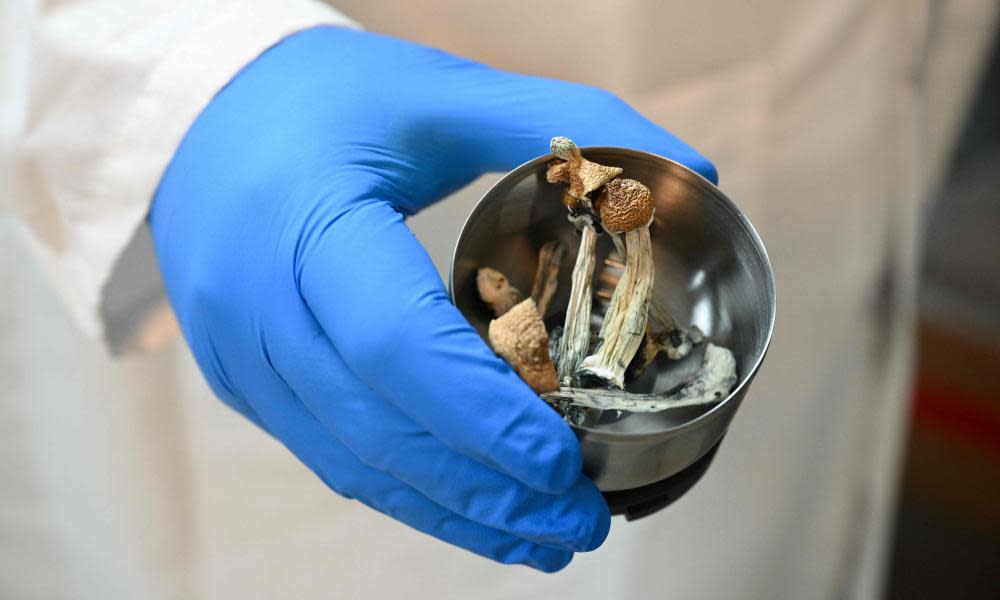Australian decision to allow psychedelic drug prescriptions criticised by mental health experts

The decision by Australia’s drugs regulator to allow authorised psychiatrists to prescribe psychedelic drugs is “questionable, if not concerning”, and likely driven by the influence of lobby groups instead of health experts, mental health researchers say.
As of 1 July, authorised psychiatrists have been able to prescribe medicines containing psilocybin for treatment-resistant depression, and MDMA for post-traumatic stress disorder. The decision by the Therapeutic Goods Administration followed public consultation, a report from an expert panel and advice received from a medicines advisory committee.
But in a commentary published in the latest edition of the Australian New Zealand Journal of Psychiatry, neuropsychologists and neuroscientists have questioned why the TGA did not consult with researchers and clinicians with experience in psilocybin-assisted psychotherapy for treatment-resistant major depressive disorder. The authors of the piece have the only registered active research trial in psilocybin-assisted psychotherapy for major depressive disorder in Australia.
“It seems the TGA has yielded to pressure from the public and lobby groups to increase access to these experimental treatments, outside of clinical trials,” the piece, led by Prof Susan Rossell, a cognitive neuropsychologist at Swinburne’s Centre for Mental Health, said.
“Despite what the TGA published in its announcement, sufficient levels of evidence have not yet been generated for broad-scale implementation to be justified. Initial results have been promising by most standards, yet many questions remain.”
Rossell and her colleagues wrote that it is still unclear what kind of care needs to be delivered alongside the psychedelic dosing to ensure ongoing benefit; what the long-term safety profile of the drugs are, especially in terms of psychological recovery and relapse; and how to differentiate those patients who may benefit from those for whom it could be detrimental.
“Until these questions have been addressed in empirical research, the decision to increase public access outside of clinical trials is questionable, if not concerning,” the piece concluded.
Guardian Australia has contacted the TGA for a response.
It comes as the Royal Australian and New Zealand College of Psychiatrists (RANZCP) released the first of a series of guidance documents for psychiatrists using psychedelic-assisted therapy. The document emphasises the importance of a “safety first” approach to protect the most vulnerable.
Prof Colleen Loo, a clinical psychiatrist who has long been researching the role of ketamine in treatment-resistant depression, agreed with the authors of the Australian New Zealand Journal of Psychiatry paper that any evidence supporting ketamine use was in its early stages.
“I am not privy to the reasons why the TGA made its decision, though it is clear from media discussion of psychedelics preceding their decision that there was immense pressure from lobby groups to downschedule the drugs,” Loo told Guardian Australia.
“It is clear from the published literature that the door has been opened to clinical use much earlier in the development pathway than usual. Usually, a series of research studies are done, and approval for clinical use only occurs after there is substantive data on efficacy and safety.
“Nevertheless the decision has been made and the door opened”.
“In my experience as a clinical psychiatrist and researcher, in many cases where people tell me nothing has worked for them, there are useful proven treatments which have not been tried,” she said.
“I think taking this first step – seeing an independent psychiatrist – makes sense both clinically to get the best care and before one commits to a treatment with less evidence base than other treatments, but costing $10[k] to $30k.”
Rossell told Guardian Australia that she felt compelled to write to the journal because she was concerned that pro-psychedelic lobby groups “will move forward to such an extent with these interventions that we are going to see some significant adverse events”.
“This will obviously be terrible for the patients but also a burden for researchers and clinicians who are trying to do the right thing in this space.”

 Yahoo News
Yahoo News 
